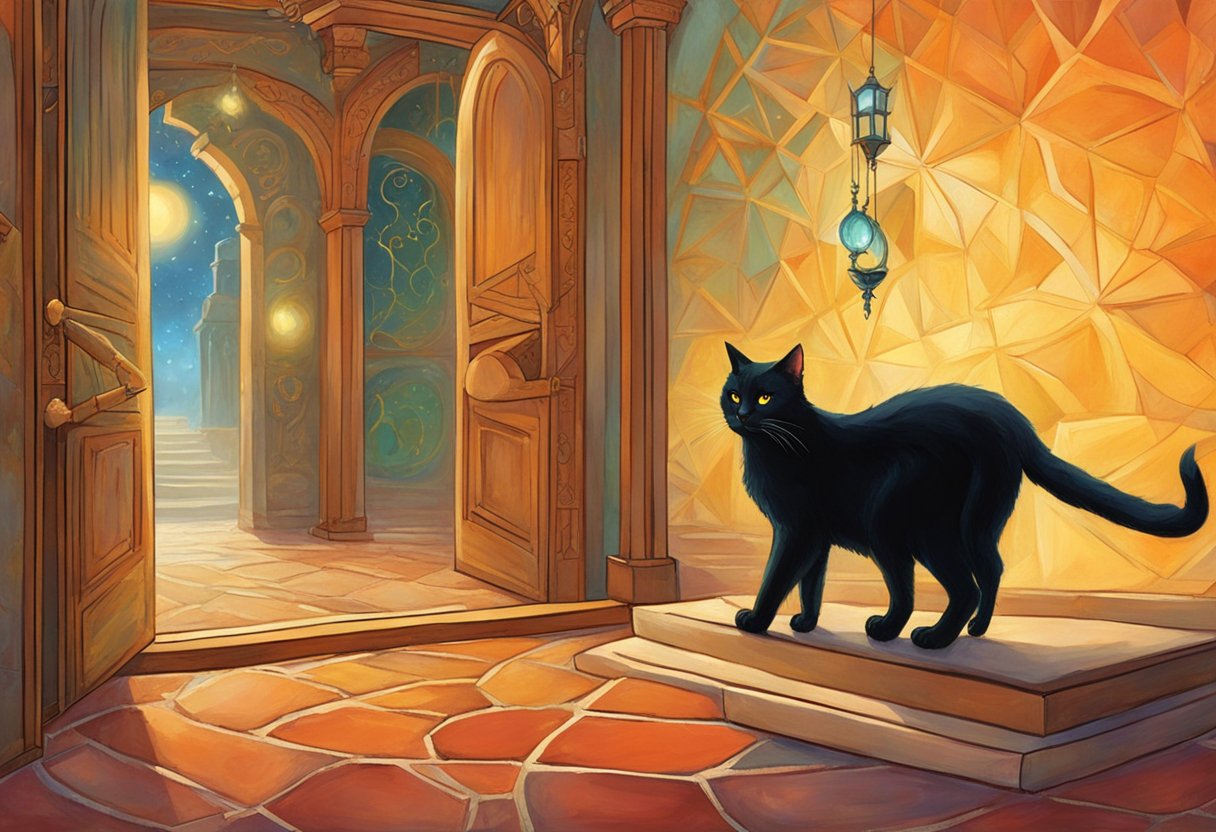Ever wondered why you get a little jittery when a black cat crosses your path, or you can't help but knock on wood just as someone is tempting fate? Welcome to the quirky world of superstitions, where your destiny might hinge on the number of crows on a fence, or so you've been led to believe. Whether or not you're stepping over cracks to save your mother's back, it's clear these time-honored traditions have a strange grip on our good fortune and peace of mind.
 Now, let's be real—you may not actually think spilling salt invites bad luck, but tell that to your reflexes as they compulsively toss a pinch over your shoulder. Superstitions come in all shapes and sizes, and you might even partake without realizing it. It’s a strange mix of tradition, belief, and the human tendency to find reason in the randomness that makes you carry that lucky penny or avoid signing contracts on Friday the 13th.
Pause for a second and consider why you wear your "lucky" shirt to every job interview. Is it really the fabric of your future success, or could it be that little belief nudging you towards confidence? Let’s face it, superstitions are like the mental equivalent of fun-sized candies—mostly harmless and sometimes a sweet little comfort. So go ahead, cross your fingers for good luck, but maybe, just maybe, put a little more trust in preparation and reason. Or don't—after all, what's life without a little whimsical charm?
Now, let's be real—you may not actually think spilling salt invites bad luck, but tell that to your reflexes as they compulsively toss a pinch over your shoulder. Superstitions come in all shapes and sizes, and you might even partake without realizing it. It’s a strange mix of tradition, belief, and the human tendency to find reason in the randomness that makes you carry that lucky penny or avoid signing contracts on Friday the 13th.
Pause for a second and consider why you wear your "lucky" shirt to every job interview. Is it really the fabric of your future success, or could it be that little belief nudging you towards confidence? Let’s face it, superstitions are like the mental equivalent of fun-sized candies—mostly harmless and sometimes a sweet little comfort. So go ahead, cross your fingers for good luck, but maybe, just maybe, put a little more trust in preparation and reason. Or don't—after all, what's life without a little whimsical charm?
Exploring Superstitions and Their Origins
 Get ready to peek under the proverbial ladder of superstitions. You're about to uncover why you might knock on wood or avoid crossing paths with a black cat.
Get ready to peek under the proverbial ladder of superstitions. You're about to uncover why you might knock on wood or avoid crossing paths with a black cat.
Superstitions Through the Ages
Superstitions aren't just your grandmother's tales; they're ancient. The ancient Egyptians were into superstition way before it was cool, but not quite in the way you think — their pharaohs' sunshades didn't exactly pave the way for your fear of black cats. By the Middle Ages, every creak and groan of a wooden ship could spell disaster, leading to a whole sea of superstitions for sailors. Want to talk about antiquity's hit-list? Let's not forget the number 13, a crowd-displeaser at dinner parties since who-knows-when.- Luck: A rollercoaster through time, where sometimes it's as simple as finding a four-leaf clover in your backyard.
- Harm: From witches to walking under ladders, these tales were the "stranger danger" of the old days.
Famous Superstitions and Their Meanings
You've probably encountered a black cat and debated its career as a harbinger of bad luck. Or maybe you've tossed salt over your shoulder — congrats, you've just performed an ancient ritual to ward off evil. And admit it: you've definitely ensured you didn't break a mirror to avoid seven years of drama.- Black Cats: Once revered creatures, then suspected sidekicks of witches, now just cute but misunderstood furballs.
- Walking Under a Ladder: It's believed to be a metaphorical gateway for spirits. Don't invite the spectral party crashers; walk around.
- Number 13: Let's just say, historically, you'd want to skip straight from 12 to 14 if you were numbering rooms.
The Psychology Behind Superstition
Ah, the human brain — it loves patterns, even when it makes up its own. Your brain sees cause and effect in random events because it craves control in the chaos. Behold magical thinking, where you believe your thoughts have the power to influence the real world. And guess what? It's linked to anxiety. You're trying to predict the future and avoid harm, even if it means wearing the same "lucky" socks for every job interview.- Anxiety and Control: Superstitious habits are like comforting teddy bears for adults, helping to soothe your worries.
- Community and Tradition: Superstitions are the original social media — shared widely, creating instant communities, way before the birth of the hashtag.
- Mental Health: While it's all fun and games to avoid stepping on cracks, when rituals rule your life, a chat with a mental health professional might not be the worst idea.
Superstition in Daily Life: Habits, Rituals, and Oddities
 Let's be honest, whether you toss salt over your shoulder like a chef adding a pinch to a gourmet meal or avoid opening an umbrella indoors as if it were a forbidden dance move, superstitions weave through the fabric of your daily life with a flair of mystery and a dash of humor.
Let's be honest, whether you toss salt over your shoulder like a chef adding a pinch to a gourmet meal or avoid opening an umbrella indoors as if it were a forbidden dance move, superstitions weave through the fabric of your daily life with a flair of mystery and a dash of humor.
Modern-Day Superstitions and Practices
Ever clung to a lucky rabbit’s foot before a big meeting, convinced it's the secret sauce to your success? Or perhaps you’ve hunted for a four-leaf clover with more focus than a detective on a case, hoping it’ll bring a touch of fortune to your love life. These habits are like society's quirky ticks—you look funny doing them, but they're too ingrained to shake off. Wearing special socks for game day or knocking on wood after tempting fate are not just pastimes but a silent nod to the fabled whispers of old wives' tales.- Common Superstitious Behaviors:
- Knocking on wood to avoid bad luck
- Carrying a good luck charm, like a lucky coin or a rabbit’s foot
- Throwing salt over the left shoulder to ward off evil
The Impact of Superstition on Behavior and Culture
Your community might not admit it, but superstitions shape behaviors and underpin many cultural rituals. Take weddings, for instance—something old, something new, anyone? These traditions are like society’s heirlooms, passed down to ensure love, certainty, and, let's face it, a fabulous wedding album. But superstitions don’t just dress up the past—they march into the future, serving as a compass in a world where certainty can be as elusive as, well, an honest politician.- Cultural Superstitions:
- Horseshoes displayed for protection and good luck
- “Something blue” in weddings to symbolize love and fidelity
- Avoiding the number 13, especially in buildings—nope, that floor doesn't exist!
Navigating the Fine Line: Superstition vs. Mental Health
Walking the tightrope between a light-hearted superstition and a full-blown obsession can be trickier than choosing the shortest line at the supermarket on a Saturday morning. A little superstitious behavior is like a personal quirks buffet. But when those quirks start dictating plans, it might be time to power walk to a mental health professional. Just remember, engaging in rituals for a sense of control is human, but if you're arranging your canned goods by color and alphabet—twice—it might be more than just a cute quirk.- When to Seek Help:
- When superstitions interfere with daily functioning
- When rituals become time-consuming and cause distress
- When there's persistent worry or anxiety around superstitions







